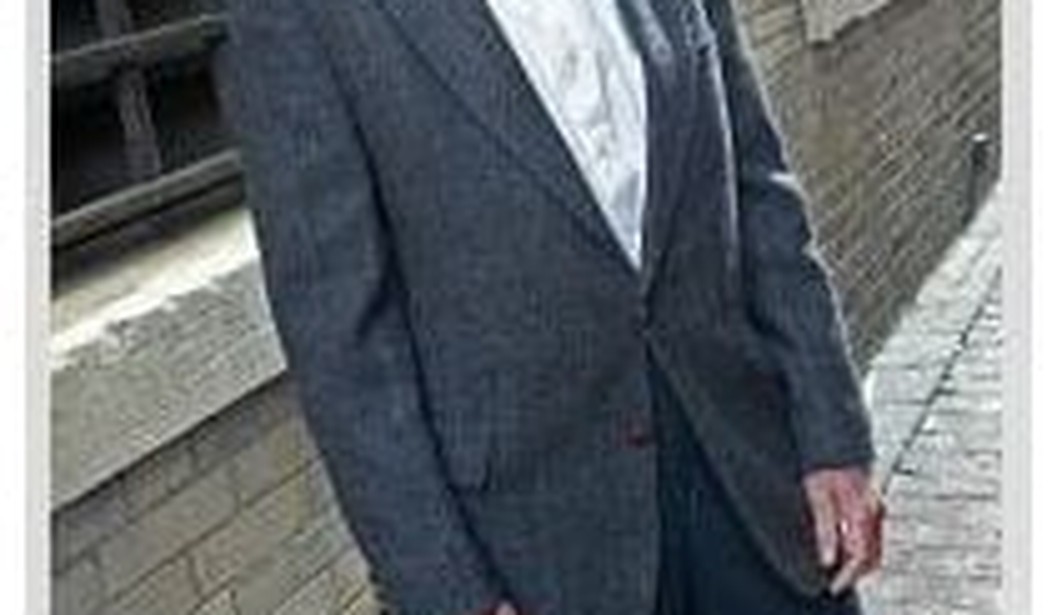I still watch war movies, looking for the ones that do it well as a technical matter, though real war ruined war movies for me. Even in the best, a written, acted script is vaguely offensive, that people who have never done this should attempt to dramatize it. There are maybe a handful that come close to capturing the strange normality of extraordinary events, when death and valor are common, unsurprising occurrences.
Images and dialogue will never convey things like the feeling of lying awake before dawn, when fear shoves its way up and down your esophagus like a fat, filthy rat; or the subdued euphoric feeling as the assault gets underway and you are ready to die; or the laughter in the midst of combat; or the inexplicable sadness over the death of someone who would have killed you. The emotions and shock movies try to portray are so often the stock ones, and the wrong ones.
Some movies come close, but struggle to deliver even a small piece of what someone¬†like Eade¬†can convey in a few spoken words. It isn’t¬†the words, it is that thing his words carry, something almost imperceptible that comes across between the words, if you are able to recognize it. Within its embrace, it becomes completely logical that one should desire, in the company of 299 comrades, to face 250,000 Persians and die.
Eade is in a class with those Spartans. He is a slightly built, unassuming man who never talked much about it, never with anyone who wasn’t there, and surprised a lot of people when he finally did. They never suspected, despite that eye-patch and the Combat Infantryman’s Badge on his lapel and the 1st Cav emblem on his desk. But he was very matter of fact and unemotional when I asked him to talk about what happened at LZ Albany at the Ia Drang in Nov. 17, 1965, when Eade’s platoon was overrun.
“For the first hour and a half, it was intense hand-to-hand,” Eade said. “It was like a gang fight. It was small groups of us versus small groups of them. It got down to knives. It got down to choking people.”
Eade took his fire team — Wilbert Johnson, Barry Burnite and Oscar Barker Jr. — and tried to flank the NVA along a line of brush.
“We wanted to hunt them down and give the platoon a chance,” Eade said. “We bit off more than we could chew.” Shrapnel hit Burnite in the chest and disabled his machine gun. Johnson, his crewman, dragged Burnite 30 meters in an effort to get him to safety.
“It was the greatest feat of human strength I have ever witnessed,” Eade said. “I don’t know if Burnite was still alive.”
Johnson, Barker and Eade holed up among some trees and continued to fight. Johnson was killed, and Eade was shot in the gut and the right shoulder, forcing him to fire his M-16 left-handed. His legs and boots had been sprayed with shrapnel. Then it quieted a little. Barker tended to Eade’s wounds, stuffing a dirty sock into his shoulder to stop the bleeding because they were out of bandages.
“I knew and he knew that everyone else was dead,” Eade said. He told Barker to leave him and run for the trees and anthills in the center of the clearing, across 50 meters or so of open ground, where a perimeter was being held around the battalion command post.
“He refused to go,” Eade said. Shortly after that, Barker was shot in the chest, and Eade had to watch him die, drowning on his own blood.
“It took him a long time to die,” Eade said.
Then Eade was alone.
I asked him what his thoughts and emotions were at that time, as the last surviving man in his position, with the NVA moving through, finishing off the wounded. I had been under the impression that Eade had played dead to survive, but he said that wasn’t the case. A napalm drop that scorched him also flushed out the enemy and gave him a chance to kill more of them. And though three North Vietnamese surprised him and he was shot in the face, he killed them, and held his position through the night.
“Playing dead was a way to die. It made no sense to me. Our job was to hold that position and kill the enemy,” Eade said. “I had this thing in my mind, part of the U.S. Army’s General Orders and the soldier’s code you learn in boot camp: ‘I will never forget I am an American fighting man. I will never surrender of my own free will. I will continue to resist to the utmost of my ability. I will not leave my post until properly relieved.” Eade said he kept repeating it himself.
“I don’t think it was unique to me,” Eade said, citing the actions of men like Barker and Johnson. Eade said his seemingly hopeless position was made easier by his belief, established weeks earlier after seeing others killed, that he would not be leaving Vietnam alive.
“It wasn’t a matter of living or dying. It was taking care of each other and doing your duty. The anticipation of a future is what you give up. The question was not, ‘Am I going to die?’ We all know the answer to that. The question was, ‘How am I going to die? I am going to die well.'”
Eade was still alive in the morning, the only survivor of his platoon except for two who had managed to run for the perimeter held by headquarters company in the center of the landing zone the afternoon before. Eade rejects the notion that his platoon was overrun, though its hard to think of another word to describe it. He was alive and fighting when the North Vietnamese retreated. It is a point of pride.
“We held our ground,”¬† Eade said.¬† Spread out along 550 meters, 2nd Battalion of the 7th Cavalry had lost 124 of its 400 men in a few hours, with a similar number wounded. Thirty-four of the dead were from Eade’s Alpha Company.
Eade, now in his 60s, with broken body, is still a soldier. As Eade and I talked about Thermopylae the other night, we talked about the fact that for combat veterans, it is not ancient history. Eade knows what the Spartans knew.
Eade’s interest in this¬†battle goes back to high school, and the way it captured his imagination then, when he was innocent of war. He says Vietnam bled the romance out of war for him, though I’m not sure that’s entirely true.
“I don’t think anyone who studies war doesn’t get stuck on Thermopylae. It’s that thing of standing your ground to the last man,” Eade said the other day.¬†”Three days of fighting set up the Persians for their ultimate defeat. It changed history. It has taken on mythic proportions. You want to be one of the 300 … If you had your chance to cut out or stay, you’d have stayed.”
So, can a computer-generated film version of a graphic novel about what 300 Spartans did 2,500 years ago convey any of that? It will be interesting to see if it captures any of that unspoken thing that comes through between words of the inscription on the mass grave at Thermopylae:
“Go stranger and tell the Spartans that¬†obedient to their laws we lie here.”

Jules Crittenden is an editor and columnist for the Boston Herald.
Crittenden’s web page is at Forward Movement.
Title video by theash666.
When We Were Soldiers
Bayonets at Little Roundtop
We few. We happy few. We band of brothers.
“Dead or alive, we will all come home together. So help me God.”









Join the conversation as a VIP Member